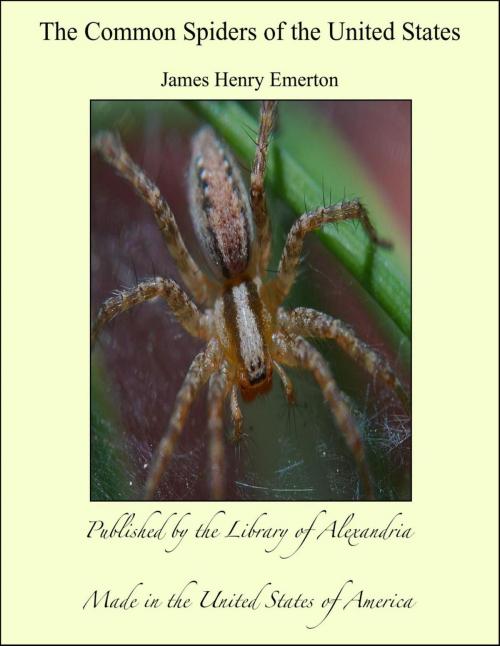The Common Spiders of the United States
Nonfiction, Religion & Spirituality, New Age, History, Fiction & Literature| Author: | James Henry Emerton | ISBN: | 9781465574268 |
| Publisher: | Library of Alexandria | Publication: | March 8, 2015 |
| Imprint: | Language: | English |
| Author: | James Henry Emerton |
| ISBN: | 9781465574268 |
| Publisher: | Library of Alexandria |
| Publication: | March 8, 2015 |
| Imprint: | |
| Language: | English |
This book is designed to make the reader acquainted with the common spiders most likely to be found over a large part of the United States as far south as Georgia and as far west as the Rocky Mountains. Local collections show that in the neighborhood of any city in the country there are at least three or four hundred species of spiders; but few such collections have been made, and it is not yet possible to tell all the kinds of spiders that live in any particular place, or how far any species extends over the country. The species which are here described and figured are all of them well known and have been described in other books. Rare and doubtful species are omitted, though some of these may in time prove to be among the most common. A large number of spiders are too small to be easily seen, and most of these are omitted, only a few representative species being described. Spiders have, unfortunately, no common names, except such indefinite ones as "the garden spider," "the black spider," "the jumping spider," and the like. Even "tarantula" has become only a nickname for any large spider. The names of spiders, like those of other animals, have been given to them independently by different persons, so that many of them have more than one name, and the more common the spider the larger the number of names. In this book only one name is usually given to each species, and the name used is one that has been published with a description of the species in some other well-known book. Readers who are interested in the names of species and in comparing the classifications of different naturalists are referred to a "Catalogue of the Described Araneæ Of Temperate North America," by George Marx, in the Proceedings of the United States National Museum, 1890, which is a useful index to what has been published on American spiders.
This book is designed to make the reader acquainted with the common spiders most likely to be found over a large part of the United States as far south as Georgia and as far west as the Rocky Mountains. Local collections show that in the neighborhood of any city in the country there are at least three or four hundred species of spiders; but few such collections have been made, and it is not yet possible to tell all the kinds of spiders that live in any particular place, or how far any species extends over the country. The species which are here described and figured are all of them well known and have been described in other books. Rare and doubtful species are omitted, though some of these may in time prove to be among the most common. A large number of spiders are too small to be easily seen, and most of these are omitted, only a few representative species being described. Spiders have, unfortunately, no common names, except such indefinite ones as "the garden spider," "the black spider," "the jumping spider," and the like. Even "tarantula" has become only a nickname for any large spider. The names of spiders, like those of other animals, have been given to them independently by different persons, so that many of them have more than one name, and the more common the spider the larger the number of names. In this book only one name is usually given to each species, and the name used is one that has been published with a description of the species in some other well-known book. Readers who are interested in the names of species and in comparing the classifications of different naturalists are referred to a "Catalogue of the Described Araneæ Of Temperate North America," by George Marx, in the Proceedings of the United States National Museum, 1890, which is a useful index to what has been published on American spiders.















